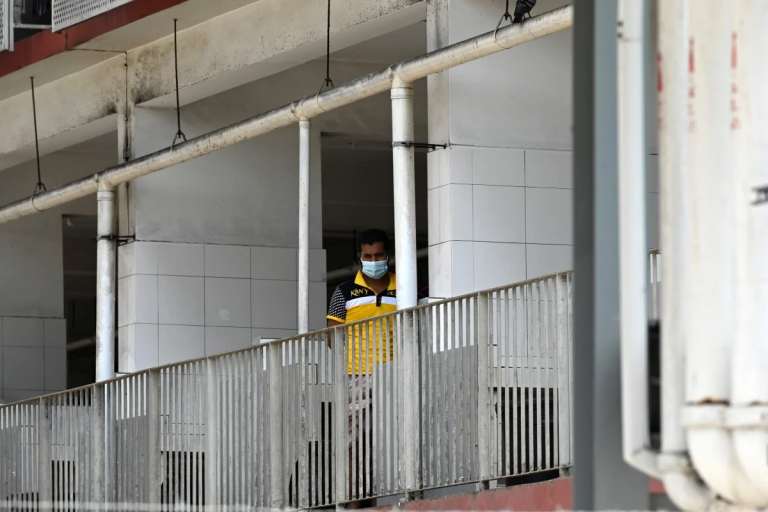9 February 2022
MASSEY RESEARCH PAPER ON HINDUTVA LEADS TO TROLLING, PERSECUTION AND THREATS VIA NZ HERALD
CARE stands in solidarity with its research team members Richa Sharma, Balamohan Shingade, and others (Indigenous women and women of colour) not mentioned in this report for their courage in documenting extremist #Hindutva nationalism and in building culture-centered preventive interventions rooted in dialogue, peace, and voice.
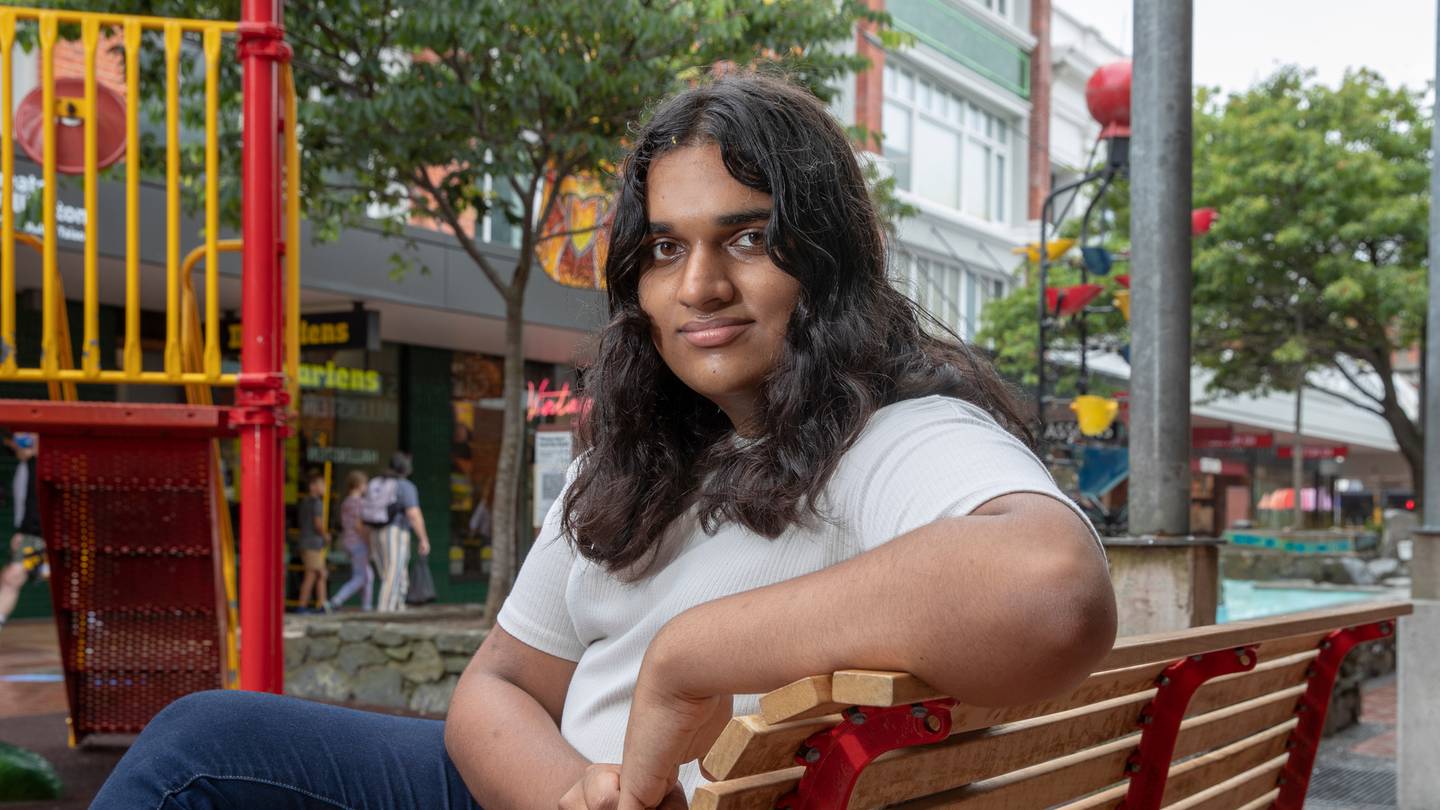
Full article:
Richa Sharma was doing research on religious extremism in Aotearoa when she got a call from her mother. Her aunties and uncles, close family friends who have known her since she was born, were convinced she was a terrorist.
For a few months last year, Richa Sharma did not go out after dark, always making sure she had safe ways to get around for work and meetings.
The 18-year-old was interning at Care, a Massey University research centre that was copping online abuse for publishing a white paper about the far-right nationalist ideology known as Hindutva and its creeping presence in Aotearoa.
There were calls for centre director Professor Mohan Dutta to be sacked, even burned alive. Police said the trolls were overseas, but an Auckland-based Indian news site published a piece calling Dutta a “left-leaning bigot under the garb of an academician”, and part of “a gang of some smelly rats”.
The Hindu Council and Hindu Youth New Zealand chimed in with nearly identical statements, condemning the paper for “accusatory and unsubstantiated assertions” that made the Hindu community look bad. Hindu Youth said it was “outright Hindu hatred”.
Most of the vitriol was directed at Dutta but his team, some of them South Asian and female, were not spared. Their profiles were public on the Care website and social media pages.
“We had to watch our steps carefully,” said Sharma, now 19. “I really didn’t feel safe. We had a police file open.”
Shortly after, an auntie and uncle reached out to Sharma’s mother back home in Palmerston North. They were not related by blood but it was custom in the community to address close family friends as auntie and uncle.
Over tea, Sharma’s mother was told her daughter worked for an anti-Hindu outfit and was urged to intervene. Auntie and uncle were convinced Sharma was a “left-wing, radical terrorist”.
Another auntie sent text messages condemning the white paper, including a petition against Massey University to take it down.
Source: NZ Herald
#CAREMasseyNZ #MasseyUni #CARECCA #CultureCenteredApproach #Solidarity #Hindutva #Nationalism #Aotearoa #NewZealand
6 April 2022
CARE RESEARCH PROJECT ARTICLE “EXPERIENCES WITH COVID-19 AMONG GIG WORKERS” PUBLISHED IN THE CONVERSATION
Voiceless and vulnerable, NZ’s gig workers faced more risk with fewer protections during the pandemic
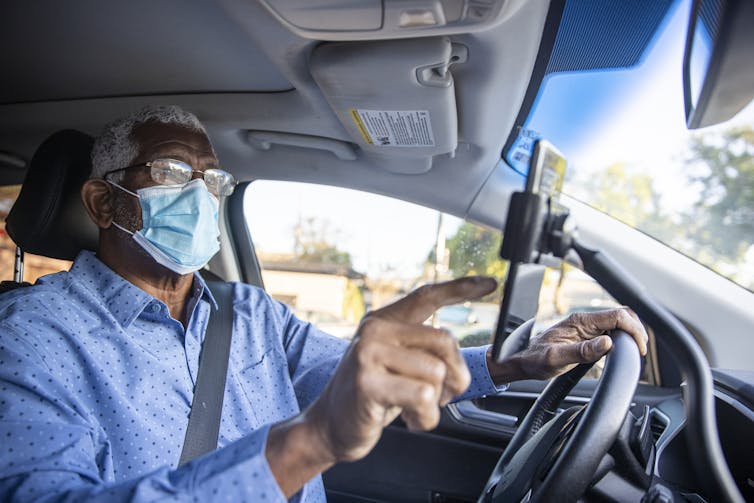
Leon Salter, Massey University and Mohan Jyoti Dutta, Massey University
Largely overlooked in the recent easing of COVID restrictions has been the unequal impact on marginalised groups such as gig workers.
While for much of the past two years there was a sense of collective risk mitigation by the “team of five million”, the government has since shifted that burden more towards individuals and personal responsibility.
But this avoids the fact that not all individuals have to negotiate the same amount of risk. And research shows gig work is one of the riskiest types of employment during a pandemic.
Furthermore, gig workers lack a public voice with which to communicate these risks to the general public and decision makers. But as our recent report – Experiences with COVID-19 Among Gig Workers – shows, these workers have been at a high risk of both contracting and transmitting the COVID-19 virus.
NO WAY TO SPEAK OUT
We interviewed 25 rideshare and delivery drivers about their experiences during the pandemic. We found the structural features of their employment not only exposed them to increased risk from the virus, but also offered minimal protection should they be too ill to work.
While conventional businesses have established infrastructures for voicing dissatisfaction with COVID policy – through organisations such as Hospitality NZ, for example – gig workers lack equivalent communication channels.
This inequality also extends to gig workers’ access to culturally appropriate preventive health information. Not unlike the inequities faced by Māori and migrant communities, this leaves gig workers (many of whom are also migrants who don’t speak English as their first language) more vulnerable to the negative health effects of COVID-19.
Such risk is compounded by the structural features of gig work. Our report is grounded in the voices of workers themselves and argues that seven structural features influence their experiences: the work is piecemeal, precarious, individualised, gamified, dehumanised, automated and hyper-competitive.
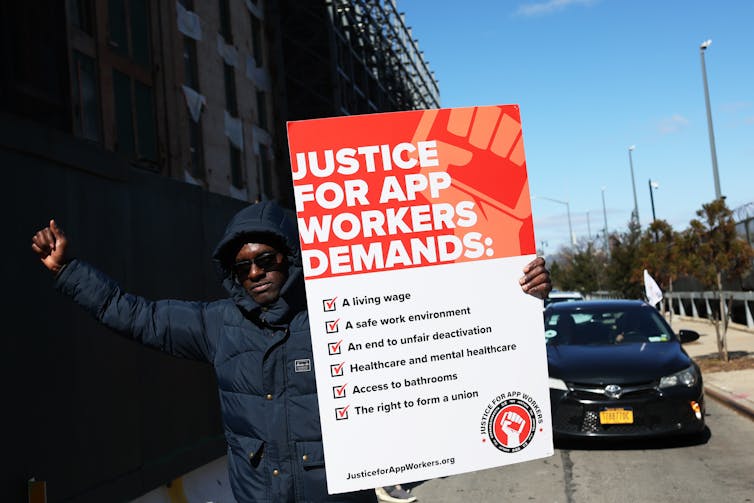
ALGORITHM AS MANAGER
By its nature, the work is driven by immediate supply and demand – drivers are paid for each micro-transaction, rather than a wage, meaning time spent waiting for jobs goes unpaid:
Sometimes it’s really quiet. It’s not even worth … turning your car on for. Yeah, it’s basically just waiting until … you know there’s going to be demand.
This in turn means no job security. If demand decreases, so does income – exactly what happened to rideshare drivers in the pandemic, with some reporting their incomes had halved or worse.
Rideshare workers’ only communication with their “employer” (their status as contractors is being disputed globally) is through a phone app, meaning interactions take the form of a game, with both parties trying to extract the most money.
There is a built-in power asymmetry, however. For example, Uber withholds information about a passenger’s destination and the length of the proposed trip, which could help a driver gauge whether to accept a job.
With no human manager and effectively managed by an algorithm, many interviewees commented on the dehumanised nature of their interactions with Uber and their isolation from other drivers. Classified as independent contractors, they function as individual micro-businesses with no colleagues and no voice or influence in their organisation:
If you’re part of it, then you’re part of it. You know this is how things are going to be. So there’s no point questioning it because there is no human component to it, so there’s no one to question.
ON THE COVID FRONT LINE
Because of their status as independent contractors, however, risk mitigation such as masks, sanitiser or plastic screens has been their own responsibility.
While Uber offered a $20 rebate for sanitiser in 2020, drivers reported a difficult application process, with many giving up. Drivers also felt they lacked preventive health education.
On top of increased precariousness and health risks, drivers also faced the consequences of COVID’s polarising effects. They reported picking up anti-mask, unvaccinated passengers, under pressure to accept the rides due to financial anxiety and the threat of poor ratings.
Especially at the beginning of the first COVID happening, a lot of customers didn’t really want to wear a mask … and I was wearing a mask obviously. But there’s some of them tried to reach for my mask and trying to make me take it off and being abusive and all this kind of thing.
If drivers become infected with COVID-19, they often lack the financial resources to cover their household expenses. Their need to keep working then puts the wider community at risk, too. The ‘Experiences with COVID-19 Among Gig Workers’ report was launched on March 24.
RISK BUT FEW REWARDS
There have been trade union efforts to organise rideshare and delivery drivers, including an ongoing Employment Court claim seeking employment rights. As contractors, however, drivers are legally barred from full union membership – again denying drivers the means to communicate their grievances.
All of these structural features mean rideshare and delivery workers have been isolated, voiceless and highly vulnerable during the pandemic. Without protections such as sick pay or annual leave, gig workers also cannot choose to work from home.
But, as some have argued, they are providing what can be regarded as an essential service, putting themselves at risk while delivering food and other goods to customers in isolation.
One of the many lessons of the pandemic is the urgent need for workers in the gig economy to have their voices heard. We all need to be more aware of the precarious and risky working conditions of the person who delivers our takeaways or takes us to a party. And we need to support worker-led collectivisation efforts.
This article is republished from The Conversation under a Creative Commons license.
Read the original article.
#TradeUnions #Uber #Aotearoa #NewZealand #stories #PrecariousWork #GigWorkers #COVID19 #CARECCA #CAREMassey #MasseyUni
3 September 2021
PROFESSOR MOHAN J DUTTA IS RECOGNISED AS A DISTINGUISHED SCHOLAR BY THE NATIONAL COMMUNICATION ASSOCIATION (NCA)
CARE congratulates Professor Mohan J. Dutta, Dean’s Chair Professor and Director for his recognition as a 2021 National Communication Association (NCA) Distinguished Scholar.
Presented annually, the Distinguished Scholar Award is NCA’s highest accolade. It honours a lifetime of scholarly achievement in the study of human communication. Recipients are selected by their peers to showcase the best of the communication discipline.
Over a span of two decades, Professor Dutta has developed the culture-centered approach through his ethnographic justice-driven communication scholarship carried out in solidarity with communities at the “margins of the margins” across the globe. Spanning 17 countries across four continents, the impact of this scholarship is felt in communities experiencing structural deprivation, through the creation of infrastructures for voice, participation, and community democracy. Fostering community participation in everyday grassroots democracies for social change, the program of research led by Professor Dutta has created community development solutions; designed material infrastructures such as community-owned food systems, hospitals, educational infrastructures, and systems of clean drinking water; led community-owned advocacy and activist campaigns, and guided public policy.
The Center for Culture-Centered Approach to Research and Evaluation (CARE) built by Dutta has led and carried out over 50 community-led social change projects across the globe, working with Indigenous communities, low-wage migrant workers, refugees, sex workers, precarious workers, domestic workers, rural communities, communities experiencing poverty, disabled communities, rainbow communities, minority communities, ageing communities, and farmers. The activist-in-residence programme at the Center, white papers, and community dialogues created anchors for structural transformation.
Theoretically, the framework of the culture-centered approach has been recognised as one of the most significant theories of communication, reflected in the Charles H. Woolbert Research Award, given to a “journal article or book chapter that has stood the test of time and has become a stimulus for new conceptualizations of communication phenomena.” His work with landless oppressed caste women farmers in Telangana organised into a cooperative has been recognised with the NCA Golden Anniversary Monograph Award. The CCA has formed the basis for over hundred research projects in marginalised communities across the globe.
Upon the recognition with the Distinguished Scholar award, noted Professor Dutta,
“The significant challenges of health and wellbeing, poverty, inequality, climate change, food security, access to clean drinking water, and peace and social cohesion outlined in the Sustainable Development Goals call for creative solutions build through community leadership and participation. I am humbled with this recognition as it speaks to the transformative power of communication, and particularly of voice infrastructures at the margins in leading the processes of structural transformation.”
In carrying out this work, Professor Dutta has educated, mentored and nurtured over three generations of students, community leaders, and activists, many of whom represent marginalised identities. His mentorship of scholars from the Global South has been recognised with the International Communication Association Aubrey Fisher Mentorship Award. Earlier this year, he was recognised with the NCA Health Communication Division Award for “Outstanding contributions to promoting Equity and Inclusion.”
Professor Dutta is also recognised with the 2015 ICA Applied Public Policy Communication Researcher Award and is an ICA Fellow.
The NCA citation reads,
“Dr. Dutta’s research examines the role of advocacy and activism in challenging marginalizing structures, the relationship between poverty and health, and the ways in which participatory culture-centered processes serve as axes of global social change, among other topics. Dr. Dutta’s research program includes 10 books, over 200 articles and book chapters, and has been cited over 12,000 times. Dr. Dutta provides extensive intellectual leadership; they have directed 46 doctoral dissertations, facilitated numerous workshops, and served as editor of Journal of Applied Communication Research.”
Professor Dutta received the award at the NCA 107th Annual Convention in November 2021.
3 September 2021
Professor Mohan Dutta, Dean’s Chair in Communication at School of Communication, Journalism & Marketing, Massey University is recognised with Outstanding Contributions to Promoting Equity and Inclusion Award by the National Communication Association.
CARE: Center for Culture-Centered Approach to Research and Evaluation congratulates Professor Mohan Dutta, as the inaugural recipient of the Outstanding Contributions to Promoting Equity and Inclusion Award of the Health Communication Division, National Communication Association. This award recognises Professor Dutta’s significant and sustainable contributions to addressing inequalities in health outcomes through communication interventions that seek to change unequal structures. Over two decades, he has created and led community-led culture-centered solutions to health and wellbeing among the most marginalised, creating spaces for communities to own decision-making processes. These culture-centered solutions have addressed classed, raced, gendered inequalities that adversely impact human health and wellbeing and created sustained changes in the overarching structural determinants. Outstanding Contributions to Promoting Equity and Inclusion Award by the National Communication Association. In promoting equity and inclusion across communities at the margins spread over eight countries, he has mentored multiple generations of academics, activists, and community researchers. This has contributed to the transformations in the disciplinary structure of health communication, building the basis for a movement toward equity.
Referring to Mohan Dutta’s influence on promoting equity and inclusion, noted Dr. Satveer Kaur-Gill, “Dr. Dutta has not just significantly contributed to toward theoretic health communication literature but has built an impressive register for socially impactful scholarship through community-led change in some of the most disenfranchised communities in different parts of the globe. His public scholarship is an exemplar for how to build health equity amidst marginalization and in challenging the very structures that impede health. This includes writing countless opinion pieces regarding important and challenging health and social issues of our time, leading social change campaigns, participating in protests, writing and signing petitions, and developing strategies alongside communities for changing structures.”
#CAREMassey #PromotingEquityAndInclusionAward #NationalCommunicationAssociation #HealthCommunicationDivision #HealthCommunication #CARECCA #MasseyCJM #MasseyUni
Follows us on: www.facebook.com/CAREMassey/posts/5158580567491640
2 September 2021
CARE RESEARCHER WINS EARLY CAREER RESEARCHER AWARD BY NATIONAL COMMUNICATION ASSOCIATION (NCA) HEALTH COMMUNICATION DIVISION
Congratulations to Dr. Satveer Kaur-Gill, on behalf of everyone at CARE, for your recognition with the National Communication Association Health Communication Division Early Career Researcher award.
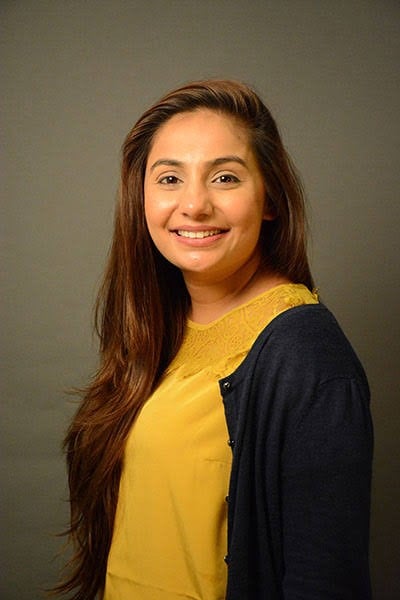
CARE Director, Prof. Mohan Dutta said, “This award speaks to your brilliance, courage, and social impact. You are the kind of scholar that reflects the mission of our discipline, to work through communicative practices to build better health and wellbeing for all. Your bold, structurally transformative, insurgent scholarship bears testimony to the power of the discipline in transforming structures, elucidating the power of communication in creating infrastructures for better health and wellbeing among the most marginalised by placing your body on the line. Your program of research rooted in community-engaged service, research anchored in community voice and teaching practice committed to nurturing an ethics of care rooted in social justice reflect the futures of health communication, depicting the powerful contributions communication scholarship can make to the contemporary global challenges of health inequities. It is rarely do we see a scholar who embodies such a strong combination of theoretical depth, methodological rigor, and commitment to transformative health communication practice. Most importantly, it is your courage and your integrity that offer the pathways for what it means to practice health communication for structural transformation.”
Follow us on https://www.facebook.com/CAREMassey/posts/5154914557858241
#EarlyCareerResearcherAward, #NationalCommunicationAssociation, #HealthCommunicationDivision, #CARECCA, #CAREMassey, #MasseyUni
28 January 2021
PROFESSOR MOHAN J DUTTA SERVES AS AN ADVISOR ON THE WORLD HEALTH ORGANISATION (WHO) EUROPE EXPERT ADVISORY GROUP ON CULTURAL CONTEXTS OF HEALTH
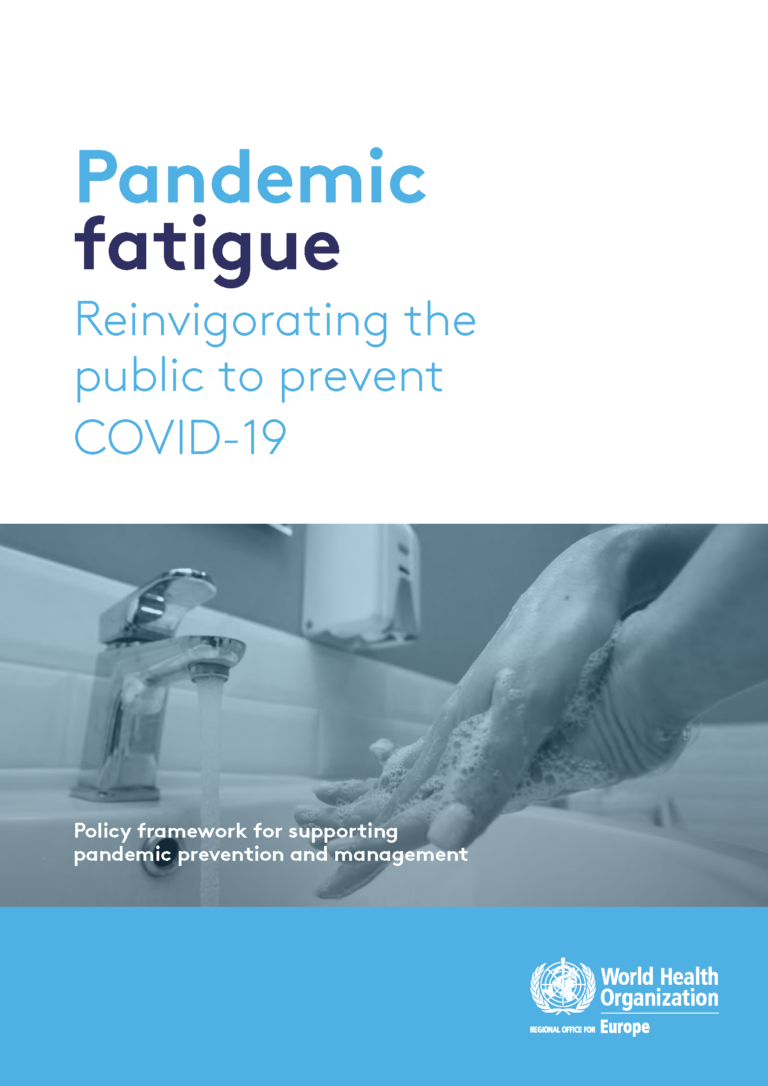
Professor Mohan Dutta offered expert insights into strategies for addressing pandemic fatigue. These insights are relevant now more than ever.
- Understand people. Collect and use evidence for targeted, tailored and effective policies, interventions and communication.
- Allow people to live their lives, but reduce risk. Wide-ranging restrictions may not be feasible for everyone in the long run.
- Engage people as part of the solution. Find ways to meaningfully involve individuals and communities at every level.
- Acknowledge and address the hardship people experience and the profound impact the pandemic has had on their lives.
#COVID19 #pandemic #pandemicfatigue #WHO #EuropeExpertAdvisoryGroup #CulturalContextsOfHealth
28 January 2021
FACULTY MEMBER DR JAGADISH THAKER CO-AUTHORED A PIECE ON ATTITUDES TOWARD VACCINES IN AOTEAROA NEW ZEALAND
CARE faculty member Dr. Jagadish Thaker co-authored a piece on attitudes toward vaccines in Aotearoa New Zealand in 2020. Dr. Ashley Bloomfield cites the research in 2021, noting that one in four New Zealanders are hesitant to get vaccinated and the importance of focusing on reliable information from trusted sources.
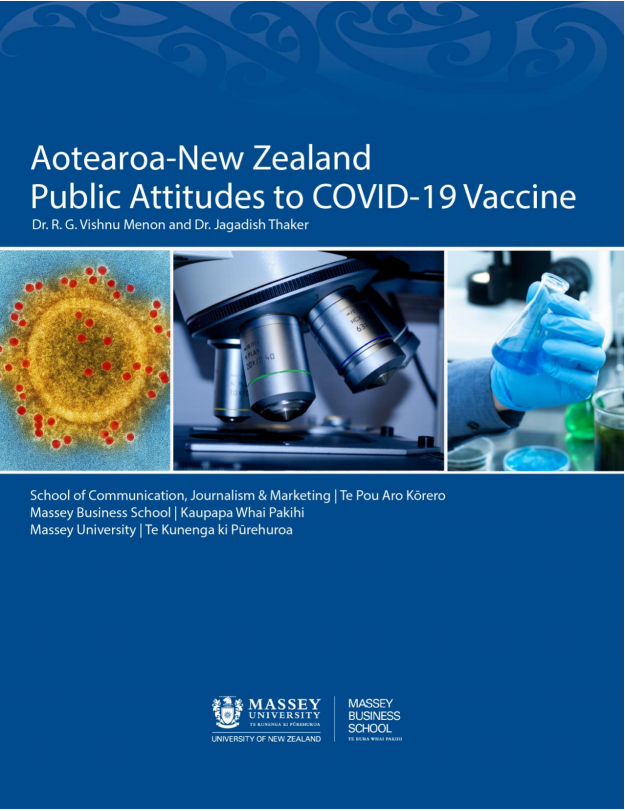
Read Dr. JT’s Research on Massey Research Online here:
https://mro.massey.ac.nz/…/Aotearoa%20New%20Zealand…
Article Links:
- https://www.rnz.co.nz/national/programmes/morningreport/audio/2018780325/vaccine-hesitant-need-reliable-info-about-its-safety-says-dr-bloomfield
- https://www.rnz.co.nz/news/national/434814/how-the-government-can-convince-doubters-to-get-a-covid-19-vaccine?fbclid=IwAR0WaXfIOdXoTVl0HSUxEOlewS5C9aBTzoN0i8CeJslIHZNZNaztpCRwp1I
Published: 14 April 2020 by Kok Xinghui and Bhavan Jaipragas,
